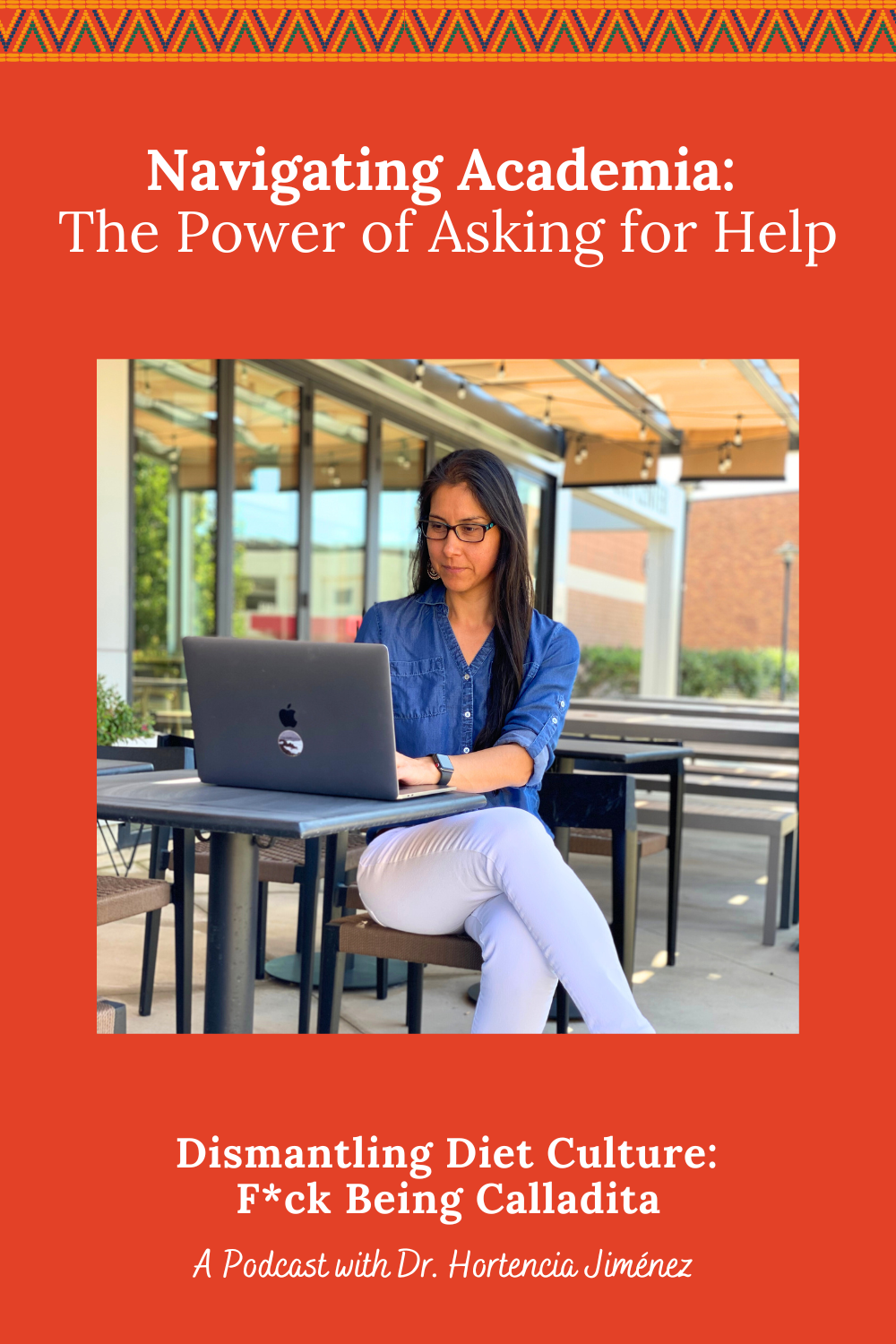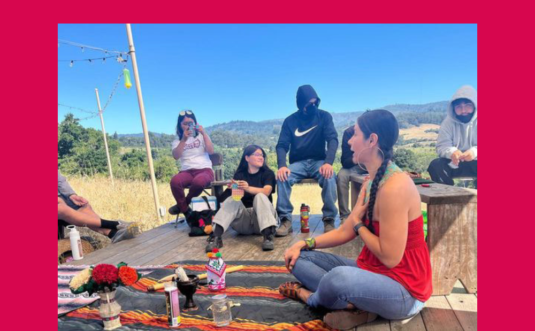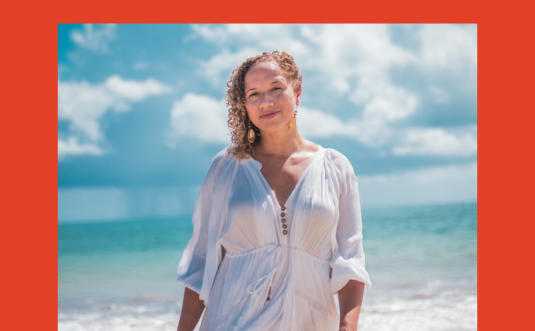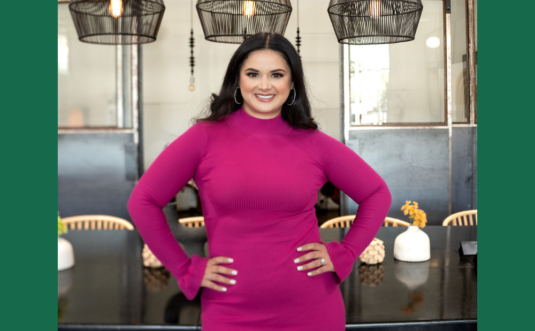Welcome back to another discussion on dismantling diet culture here on the “Fuck Being Calladita” podcast. If you’ve missed our previous episodes, I’m Dr. Hortencia Jimenez, your host. Today, we’re taking a slight detour from our usual topics to delve into a subject close to my heart—supporting students in academia by encouraging them to ask for help. Let’s explore how breaking through barriers of shame, stigma, and social conditioning can pave the way for academic and personal growth.
The Struggle of Asking for Help
Let’s start by acknowledging an uncomfortable truth—asking for help is incredibly difficult. Whether you’re a college student or navigating life as an adult, requesting assistance can carry a burden of shame and vulnerability many prefer to avoid. This struggle is often compounded by internalized cultural norms and personal conditioning. How many times have you heard phrases like, “I can do it on my own” or “I don’t need any help”? These notions of self-reliance can lead to a crippling fear of reaching out, especially in academic environments where the pressure to succeed independently is high.
Cultural and Social Conditioning
Much of the difficulty in asking for help stems from the environments we’ve grown up in. If you were raised in a household that prized individualism and self-sufficiency, you might find it particularly hard to reach out when you need support. The social dynamics within the family, like your position among siblings or the expectations placed on you by parents, also play a significant role. Moreover, cultural norms often discourage asking for help by associating it with weakness or failure.
Let’s not forget the added layer of complexity that marginalized identities bring into this mix. Being a first-generation student, undocumented, facing language barriers, or belonging to other intersecting identities can further exacerbate the anxiety around seeking assistance. These factors create an intimidating environment where asking for help feels like more of a transgression than a necessity.
Strategies for Overcoming Barriers
So, what can we do to make this easier? The first step is acknowledgment. Recognize and validate the internal and external factors that make asking for help difficult. Writing down or verbalizing these obstacles can shed light on their origins and diminish their power over you. Understanding that this reluctance is rooted in deeply ingrained beliefs and societal norms can also help you take the first steps toward change.
Once you’ve identified the barriers, it’s time to practice—think of it as exercising a muscle. Start in safe spaces. Who are the family members, friends, or colleagues who support you unconditionally? Practice asking for small favors or seeking advice on minor issues. This will gradually build your confidence and make it easier to ask for help when it matters.
Creating a Support Network
In an academic setting, creating a support network is crucial. Identify professors, counselors, and mentors who you feel comfortable approaching. These individuals might not always be in your field of study, but their guidance can be invaluable. If you’re unsure of where to start, ask your peers or a trusted faculty member for recommendations.
Don’t shy away from using the camaraderie of your peers. Student organizations, study groups, and social clubs can provide a safe space to share struggles and seek assistance. Occasionally, this peer support is all you need to muster the courage to approach a professor or counselor for help.
The Collective Power of Support
Let’s dispel the myth that seeking help is an individual journey. Academic and personal success thrives on collective effort. When you reach out for help, you’re not just aiding your growth; you’re contributing to a larger movement that challenges systemic barriers and creates a more inclusive environment.
Unfortunately, not all educators and counselors will be supportive. Some might even make you feel worse for seeking help. This is why it’s important to start within safe spaces and gradually expand your support network. Remember, perseverance is key.
Reframe Your Perspective
As we wrap up today’s episode, I urge you to reframe your perspective on asking for help. It’s not a weakness, but rather a testament to your strength, resilience, and commitment to your 5success. By seeking help, you’re dismantling oppressive systems and setting an example for others who look up to you.
So, whether you’re a first-gen student, navigating the complexities of academia, or simply someone struggling to ask for help in any aspect of life, know that you are not alone. Let’s build a supportive community together, where asking for help is seen as a courageous step toward personal and collective liberation.
Muchas gracias for joining me. If you’re struggling and need to reach out, please don’t hesitate to contact me. Share this post with fellow students or educators, and let’s continue to spread the message of support and resilience. Nos vemos in the next episode.




